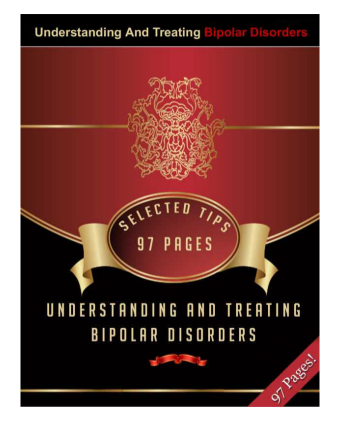Boardroom to Bestseller: Novels That Capture the Spirit of Corporate Life
In the vast world of literature, the corporate office might seem like an unlikely setting for drama, intrigue, and transformation. But novels set within the corridors of power, around polished boardroom tables, and behind closed office doors have become powerful reflections of modern ambition, struggle, and human behavior.
These stories explore what it means to chase success, confront ethical dilemmas, and navigate the complex terrain of professional relationships. From backstabbing colleagues and toxic management to redemptive arcs and visionary leadership, these novels vividly capture the spirit of corporate life.
The Allure of the Corporate World in Fiction
Why are readers drawn to corporate novels? Because the workplace, especially at the executive level, serves as a microcosm of society. It showcases ambition, hierarchy, politics, and human resilience. Whether it’s the drive to climb the corporate ladder or the quiet resignation of an overworked employee, these novels tap into universal themes that resonate across industries.
1. The Devil Wears Prada by Lauren Weisberger
One of the most iconic portrayals of office life, The Devil Wears Prada takes readers behind the scenes of a glamorous but brutal fashion magazine. The story of Andrea Sachs, a fresh college graduate thrown into the world of high fashion, becomes a narrative of survival, personal growth, and ethical awakening. The novel lays bare the sacrifices young professionals often make to "make it" in demanding industries, while also poking at the absurdities of corporate culture and toxic leadership.
2. Then We Came to the End by Joshua Ferris
This darkly comedic novel presents a collective narrative of office workers at a Chicago ad agency during a time of layoffs. Written in first-person plural (“we”), it reflects the shared anxiety, boredom, and camaraderie that bind employees in a collapsing corporate structure. Ferris expertly captures the small rituals of office life—coffee breaks, gossip, emails—that become lifelines in an unstable work environment. The novel humanizes white-collar workers and shows how ordinary people cope when the corporate machine begins to fail.
3. Bonfire of the Vanities by Tom Wolfe
A literary classic that dissects the high-powered, high-pressure lives of New York’s financial elite, Bonfire of the Vanities explores greed, status, and corporate ambition in the 1980s. The novel centers on Sherman McCoy, a successful bond trader whose life unravels after a wrong turn into the Bronx sets off a chain of scandals. Through McCoy’s downfall, Wolfe critiques the soullessness of Wall Street and the precariousness of success built on image and ego.
4. Company by Max Barry
In this satirical novel, readers are introduced to Zephyr Holdings, a company so secretive that even its employees don't know what it does. The protagonist, Stephen Jones, gradually uncovers the surreal and absurd nature of the organization. Company is a biting commentary on corporate inefficiency, bureaucratic jargon, and the blind pursuit of policy over purpose. Barry's humor serves to underscore the real frustrations many employees face in large, impersonal organizations.
5. The Circle by Dave Eggers
This cautionary tale dives into the tech corporate world, examining the blurred lines between innovation and surveillance. Mae Holland joins The Circle, a powerful tech company, and becomes swept up in its utopian promises of transparency and connectivity. However, the novel gradually reveals the dystopian consequences of corporate overreach, digital dependency, and loss of privacy. Eggers explores the seductive nature of corporate culture in Silicon Valley and the ethical compromises that come with absolute connectivity.
6. The Partner by John Grisham
While Grisham is best known for legal thrillers, The Partner offers a riveting look at greed, betrayal, and corporate deceit. Patrick Lanigan fakes his death and absconds with $90 million from his law firm. Years later, he's captured, and the real drama unfolds. The novel touches on the corruptive potential of corporate power and the drastic measures one might take to escape a morally bankrupt professional life.
Corporate Archetypes and Character Development
These novels don’t just present workplace situations—they offer complex characters shaped by their environment. You'll find:
The Ruthless Boss – demanding, manipulative, often a symbol of systemic oppression (e.g., Miranda Priestly in The Devil Wears Prada).
The Naive Newcomer – typically young and idealistic, they evolve through hard-earned lessons (e.g., Andrea Sachs).
The Corporate Rebel – someone who questions the system and fights for change (e.g., Stephen Jones in Company).
The Fallen Giant – once-successful individuals brought down by greed or pride (e.g., Sherman McCoy in Bonfire of the Vanities).
These archetypes mirror the real players in corporate life and allow readers to reflect on their own experiences or aspirations.
Themes That Define Corporate Fiction
Ambition and Identity: Many novels explore how corporate ambition shapes identity. Characters often sacrifice personal relationships or values to climb the ladder.
Ethical Dilemmas: From insider trading to workplace harassment, these novels probe the moral gray areas of professional life.
Alienation and Burnout: Behind the glamour of executive offices lies the toll of stress, alienation, and disillusionment.
Power and Politics: Office politics and power struggles provide fertile ground for conflict, deception, and manipulation.
Reinvention and Redemption: Some characters find a way out, discovering new paths that prioritize authenticity over achievement.
Why These Stories Matter
In a world where work defines much of adult life, fiction rooted in corporate environments offers more than just entertainment. These stories act as mirrors, prompting readers to evaluate their careers, office cultures, and life priorities. They help demystify the corporate ladder, humanize executives, and validate the everyday struggles of employees at every level.
Moreover, corporate novels serve as cautionary tales and inspiration. They show what happens when ambition goes unchecked, and conversely, how integrity, courage, and authenticity can lead to meaningful transformation.
Final Thoughts: The Boardroom as a Literary Stage
From financial high-rises and tech campuses to crumbling ad agencies and secretive conglomerates, the corporate world offers endless material for literary exploration. These novels do more than just entertain—they critique, expose, inspire, and educate.
Whether you're a seasoned executive, an aspiring entrepreneur, or simply someone navigating office life, these stories offer both escape and resonance. In their pages, we find exaggerated versions of our workplace realities, allowing us to laugh, reflect, and perhaps reimagine what success truly means.
So, the next time you feel overwhelmed by meetings, deadlines, or office politics, pick up one of these boardroom bestsellers. You might just discover that the story of corporate life is, at its heart, a very human one.







